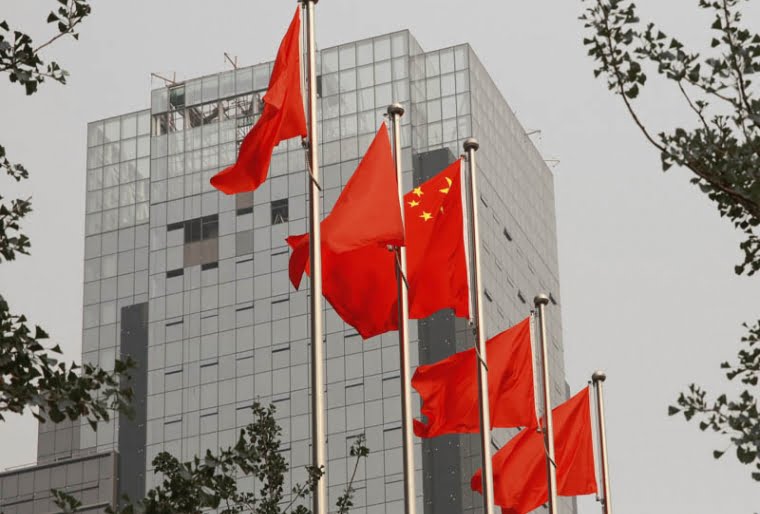In May 2011, in his final months as Australia’s Ambassador to China, Geoff Raby –one of Australia’ most outspoken diplomats in recent years – delivered the withering put down to his old diplomatic colleague Kevin Rudd “to speak Chinese is not to know China.”
It’s a line that is very easily applied to Raby’s good friend Malcolm Turnbull, who stepped into the Prime Ministership today as arguably Australia’s most China – and globally – savvy Prime Minister on day one.
Kevin Rudd, with his university shaped Chinese tones, had been schooled in diplomacy but flunked the real world test by lecturing the Chinese on their home turf, only six months into his premiership. This left him with no friends in Beijing.

Rudd’s interest in China was always more academic that practical, Confucius before commerce, if you like.
Turnbull’s experience of – and interest in – China has always been far more practical and it stretches back more than two decades to his long stint in investment banking, latterly heading the Australian operations of Goldman Sachs, he was intimately involved in a range of deals in China.
In a speech to the National Australia Bank Australia-China Business Week last September, Turnbull described his introduction to business in China thus:
“It was 20 years ago this week that we established, with the Zhangjiakou City Government and the Hebei Province Geological Bureau a contractual joint venture, Hebei HuaAo Mining Industry Company Ltd, to explore and develop a promising lead zinc deposit at Caijiaying near the town of Zhangbei in Hebei Province,’’ the then Communications Minister said.
“That was the first sino-western joint mining venture in China, now listed in London, and last year produced 788,000 tonnes of ore and 461 million RMB of revenue employing 700 local people.
“Although it is a long time since I was a shareholder, I am very proud that we were able to establish that mine – not simply because it was the first of its type, but because it has contributed to the growth and prosperity of China, bringing together Australian and Chinese expertise in every relevant field. One of my colleagues at the time, geologist Dr Zhou Bo, is, I am very pleased to say, still actively involved as a director of the project.”
Imagine that! A Liberal Prime Minister who has Chinese friends. (Bob Hawke was famously friends with Chinese reformist leader Hu Yaobang and has many, many business associates in China these days; Rudd, too, has many Chinese friends. John Howard and Tony Abbott, not so much). Turnbull also, in an echo of Kevin Rudd, has a Chinese daughter in law (Rudd’s had a Chinese son-in-law).
Turnbull and his wife Lucy have been regular travellers to China for no other reason than they are fascinated with the place and understand its absolute centrality to Australia’s economy and its future.
Indeed, in both his pitch for the PMs job and his first stint in front of the cameras as PM designate on Monday night he raised the China Free Trade Agreement and those with Korea and Japan which will be, at least, the Abbott government’s most tangible achievements.
Turnbull understands contemporary China: the place seething with entrepeneurs and a burgeoning services economy, far better than Rudd ever did. Certainly far, far better than Tony Abbott and Joe Hockey ever did or cared to.
Hockey continues to express his faith in Chinas economy even as it has become clear to enthusiastic amateur observers that it has problems.
Turnbull, in his first moment as leader also spoke of disruption in the economy, the first time (and I don’t think I am wrong here) the word has spilled from an Australian Prime Minister’s lips. Nothing has disrupted the global economy and indeed the Australian more than China in the past two decades. The sheer scale of a new entrant like China rising form nowhere to No 2 has sent shockwaves around the world.
And it goes without saying that Turnbull, who has toured the vast Shenzhen headquarters of Huawei Technologies, a company that has disrupted the telecoms and internet equipment sector forever, recognises the technology piece of China’s disruption for good and for bad (the rise and rise of cyber warfare).
In lockstep with Turnbull will be his old friend Julie Bishop, who along with Turnbull and Andrew Robb (of ChAFTA fame) far and away make up the most China and Asia literate trio of Ministers to grace an Australian government front bench since the heady days of the Hawk government.
But Turnbull is also a realist, he has travelled the world both as a private businessman and politician. He understands that commercial and strategic interests don’t necessarily always converge.
While he certainly understands the opportunities of China, in the country’s recent aggressive actions in the South China Sea there are growing risks.
“A real risk is that an incident at sea escalates, drawing in the United States with unpredictable consequences, “Turnbull said last year.
“In my view we should expect China to become more assertive in its own region. It is, or shortly will be, the largest economy in the world. Its rise is to be welcomed. But it is vitally in our and China’s interests that its rise is peaceful.”
If it isn’t that could be disruption that is nobody’s friend.
Do you know more? Contact James Riley via Email.

